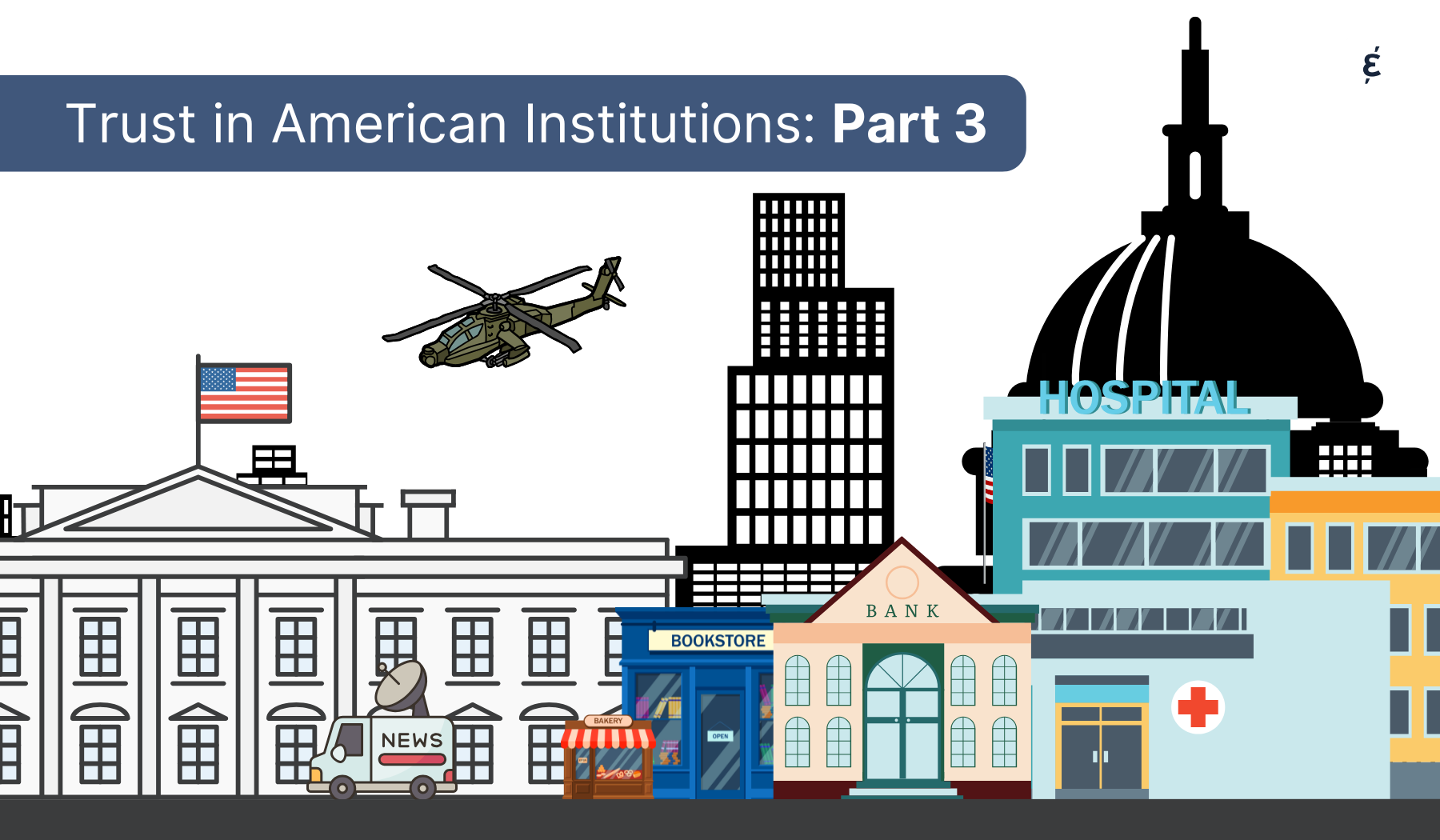
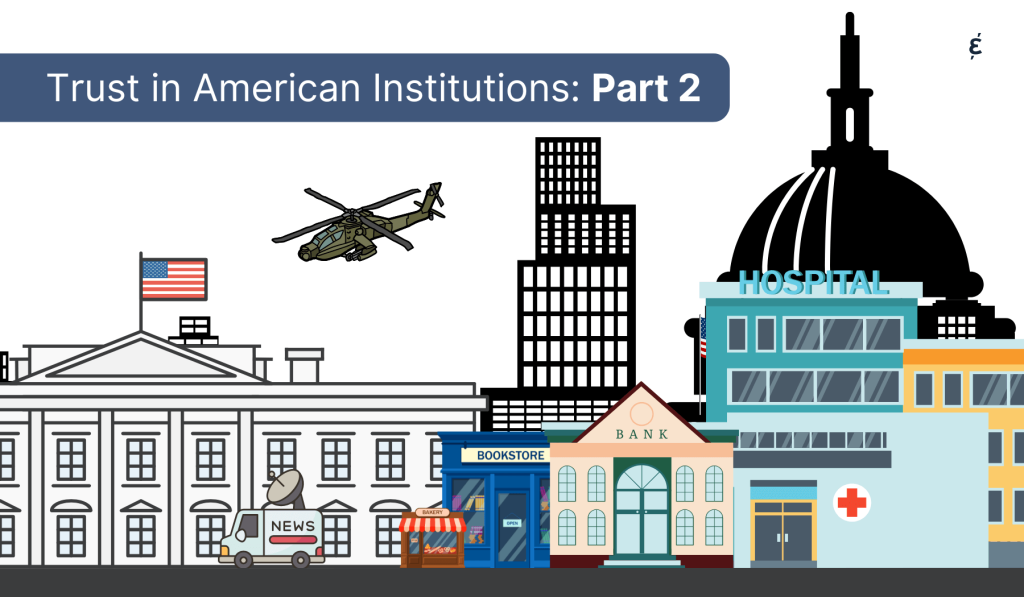
In the wake of the recent US presidential election, questions about the public’s trust in American institutions remain as pressing as ever.
To better understand these dynamics, we repeated the survey we conducted shortly before the election, which explored trust levels across sectors ranging from government and media to business and non-profit organizations.
The new survey allows us to compare trust levels before and after the election and provides a baseline for assessing shifts in public sentiment during President Trump’s second term.
We will repeat the survey 100 days into the Trump administration to measure evolving attitudes as policy decisions take effect — and, potentially, as large corporations and other institutions look to become more trusted.
The tables below show the results of the latest survey, alongside those of the previous one. The latest survey was identical to the first one, with one exception: respondents chose from a different list of hypothetical future presidential candidates.
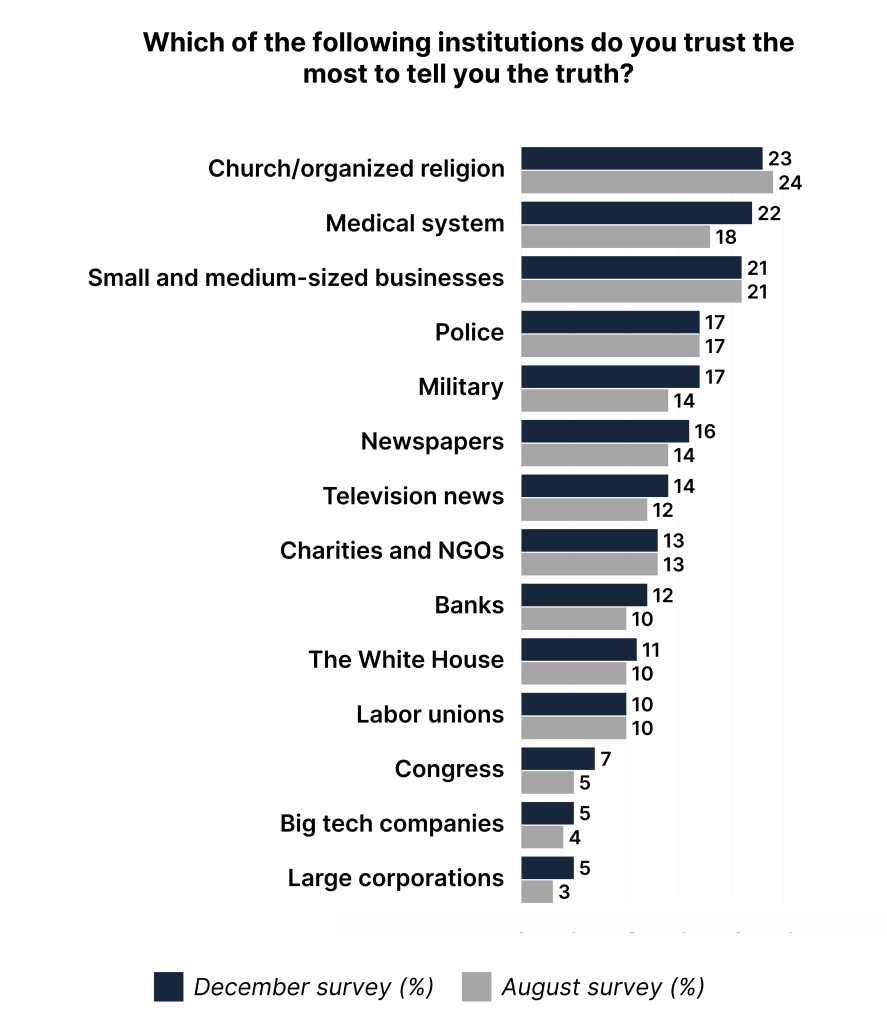
Among respondents who identify as Democrats, trust in almost every institution has risen since August.
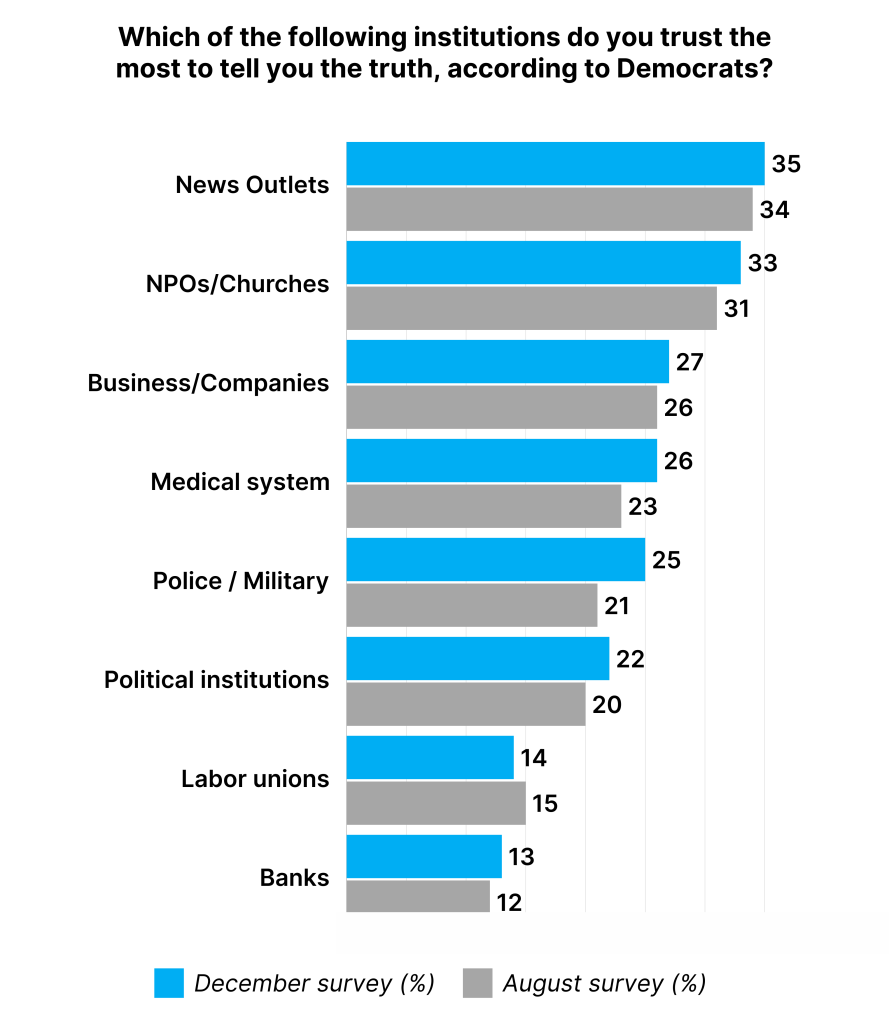
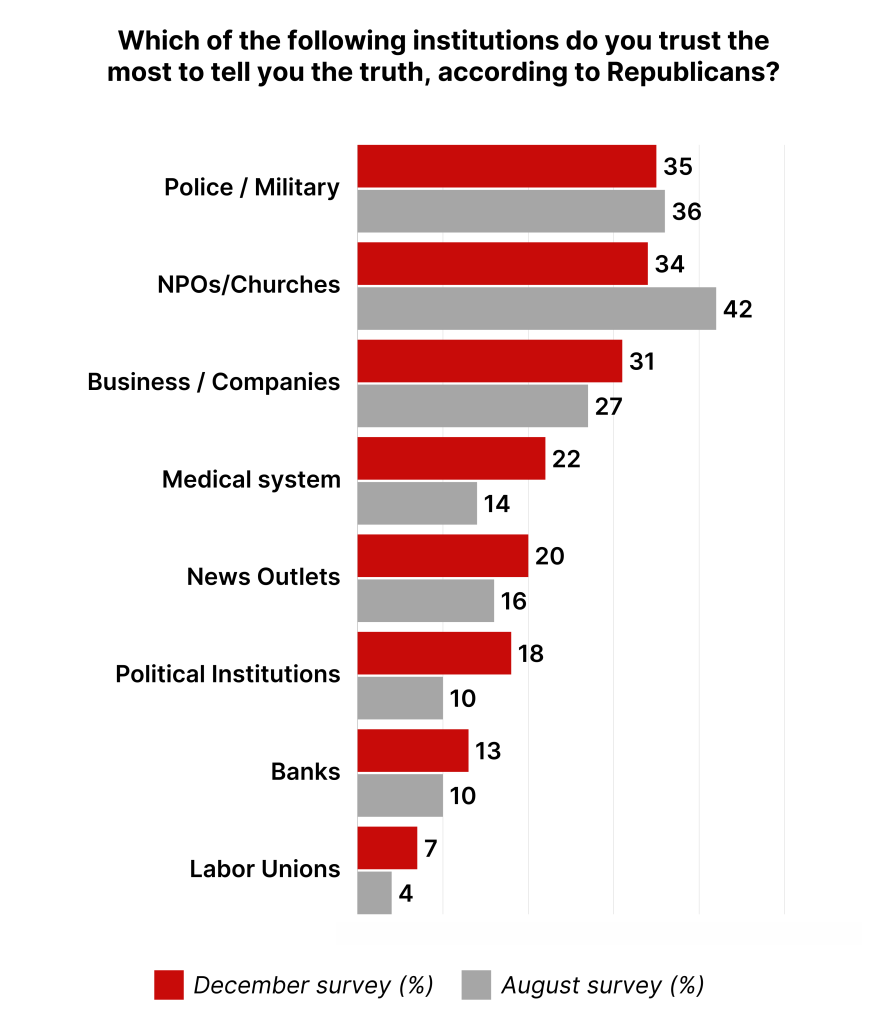
Traditional precursors to the presidency remain the most popular choices — though members of Congress are now seen as better suited to the role than lawyers or soldiers.
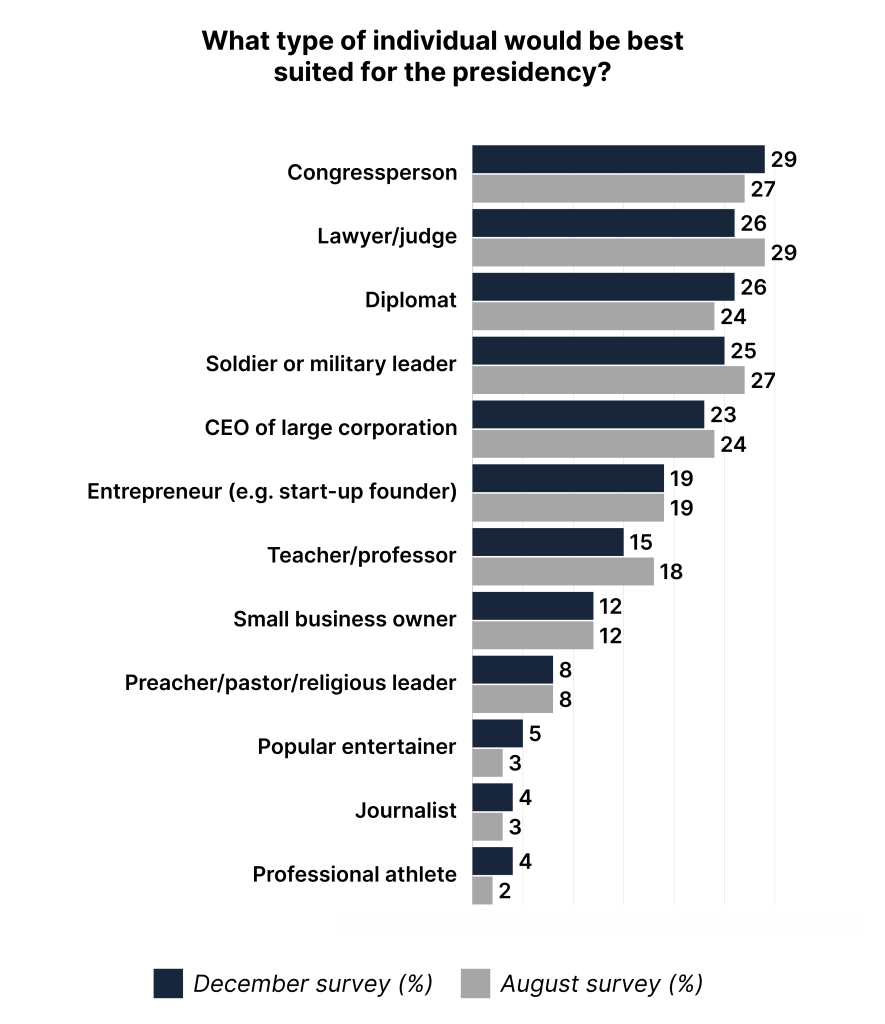
People who identify as Democrats still favor presidential candidates with political or legal experience — but not as much as they did in August. Candidates with a business background have grown in suitability, while those from academia have declined.
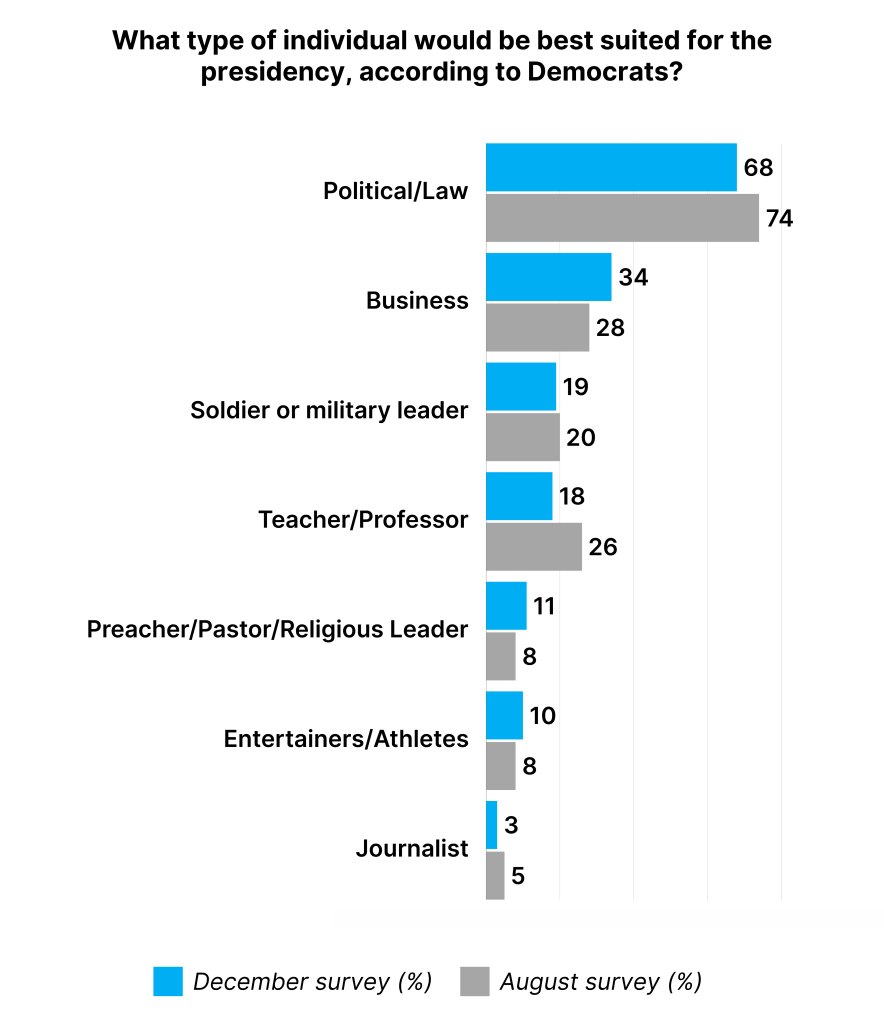
People who identify as Republicans still prefer presidential candidates to have a business background. Compared to August, however, they’re much more likely to think entertainers or athletes are suitable — and less inclined towards candidates with a military background.
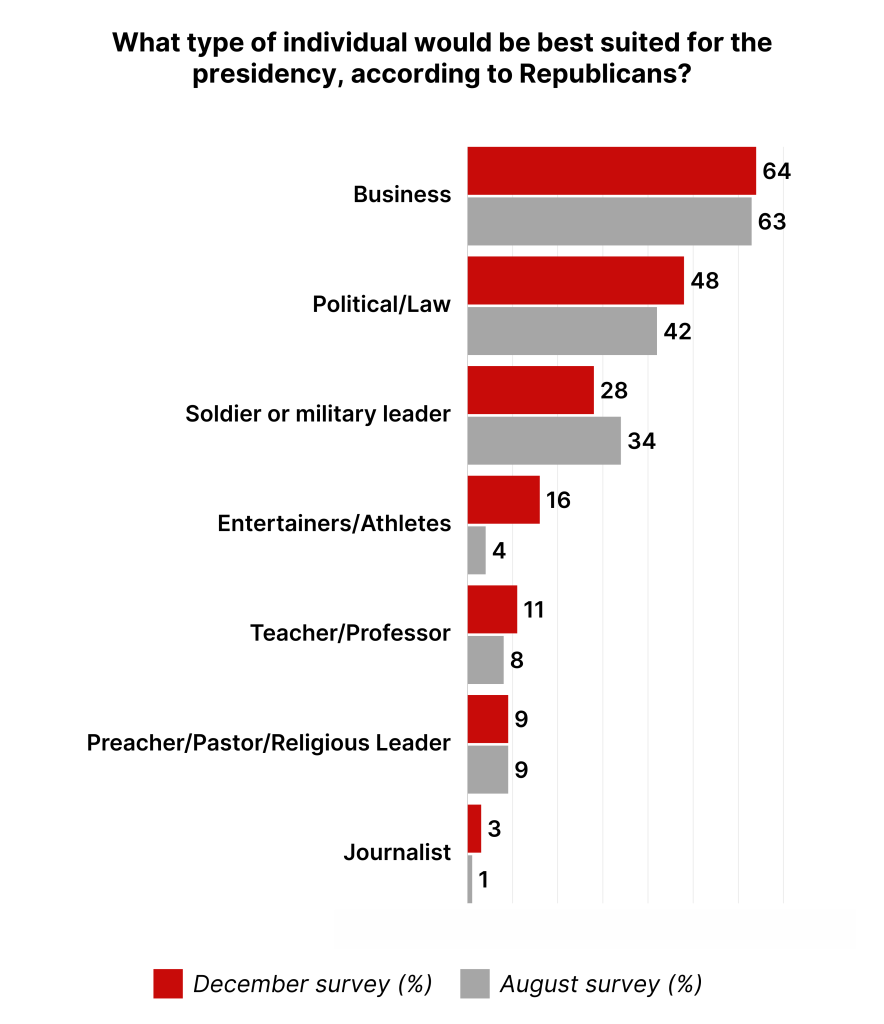
Compared to August, fewer Americans think integrity/ honesty is the most important quality in a president, while political experience is seen as more important than before.
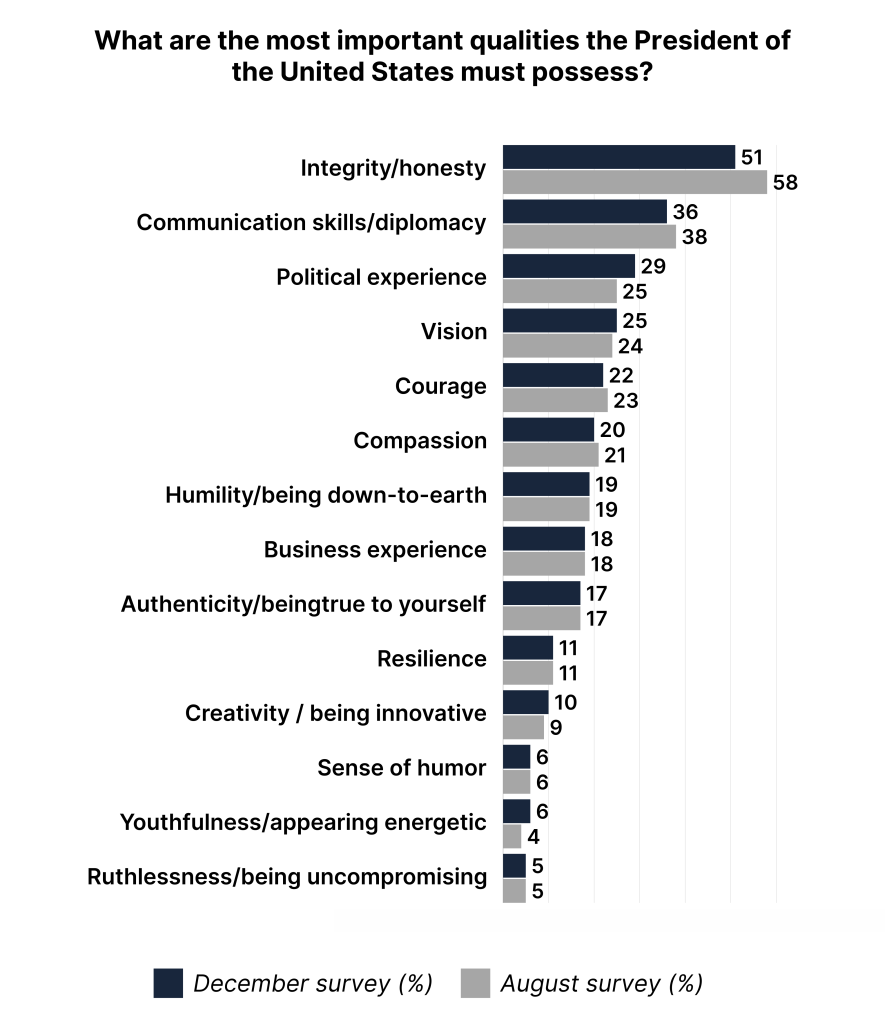
Integrity, vision and authenticity are seen as less important qualities in a president among Democrats, while both political and business experience have grown in importance,
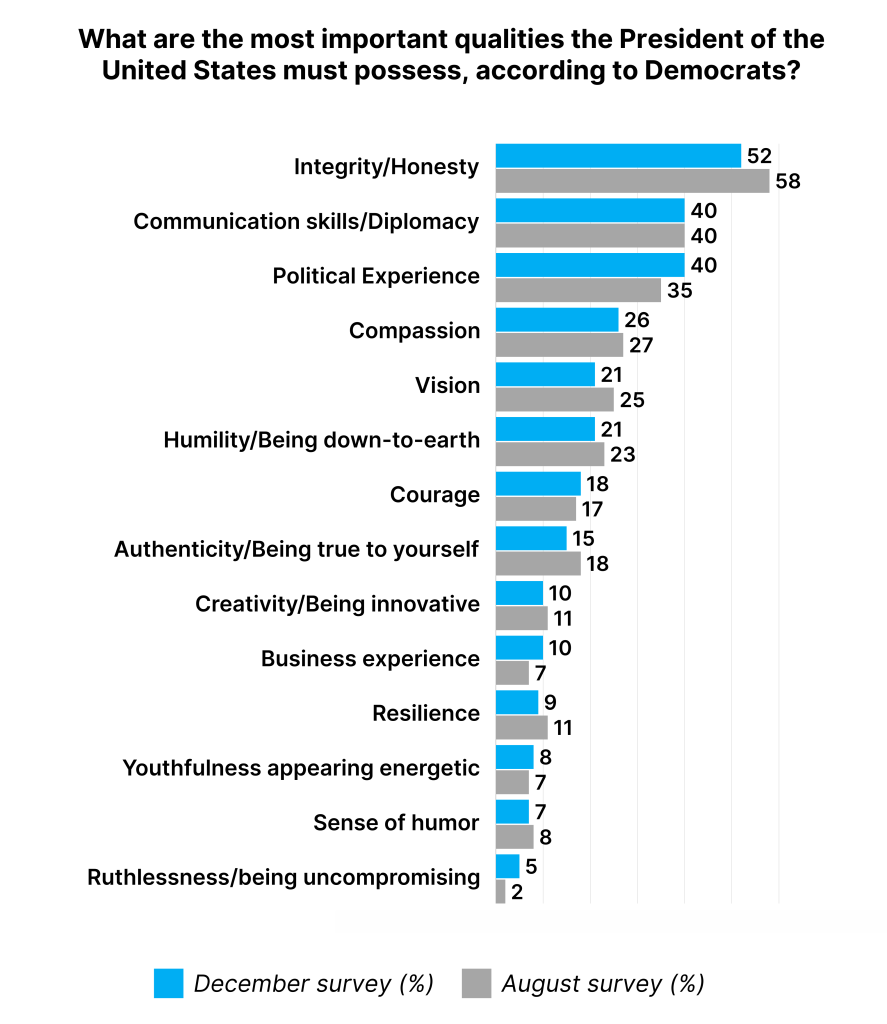
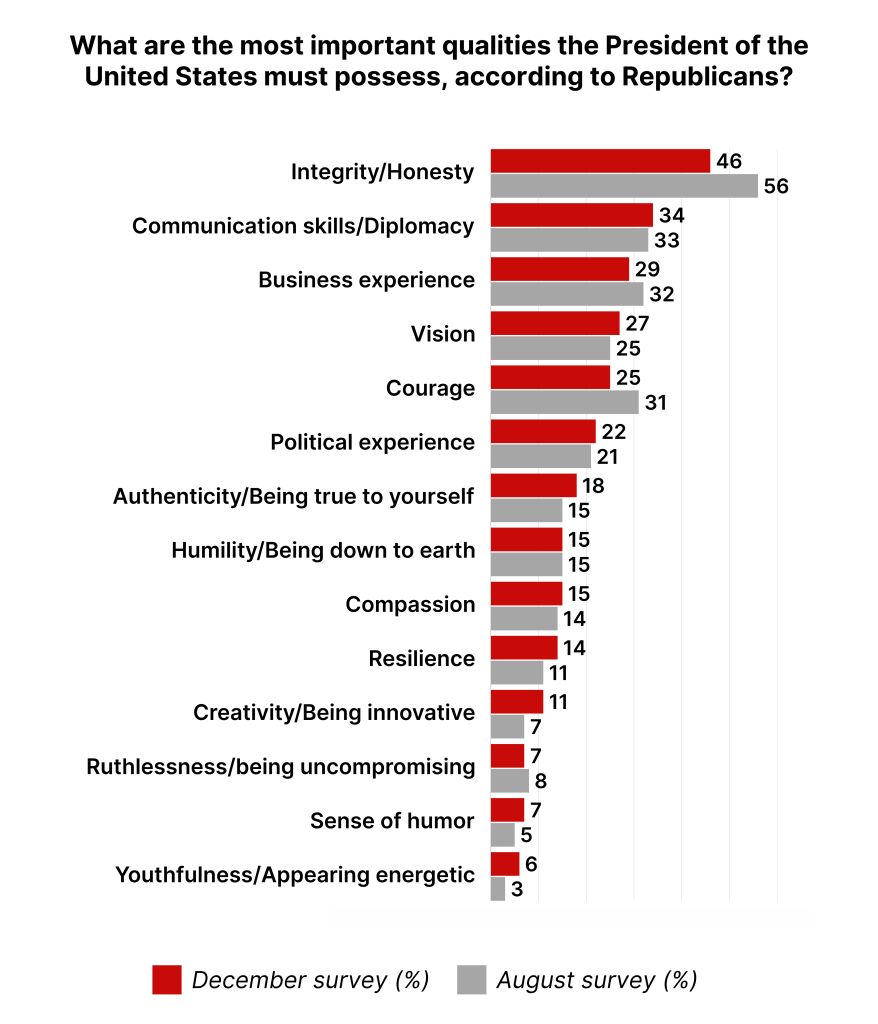
Only two hypothetical candidates garnered more than a quarter of the “votes” — the former First Lady and the most recent Democratic party nominee.
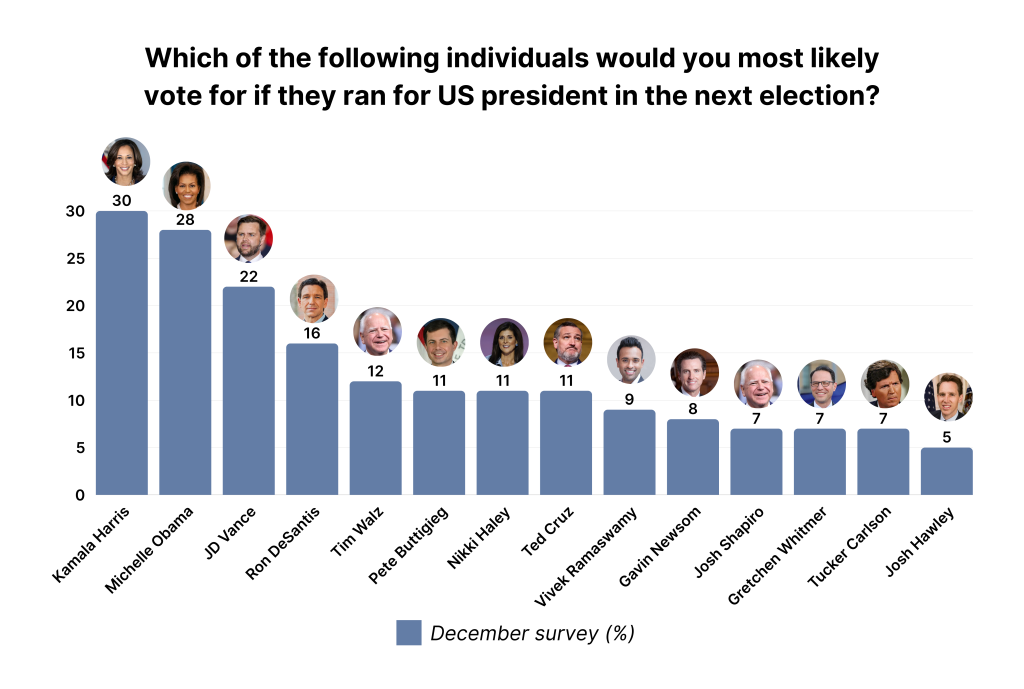
You may also be interested in: